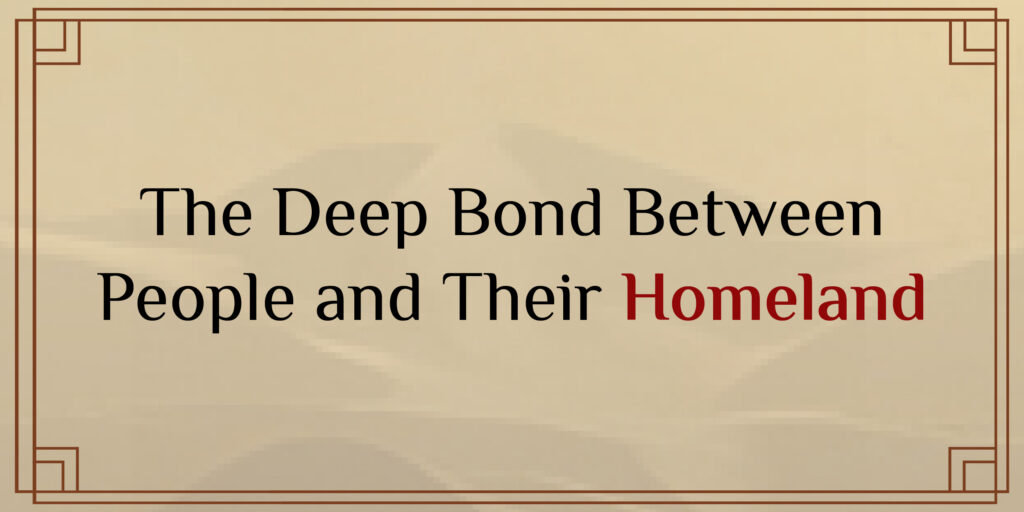A homeland is more than just a piece of land. It represents a place where people form their deepest connections, build their identity, and find their roots. For many, the homeland is not just a geographical location, but a collection of memories, feelings, and experiences that define who they are. Even when individuals leave their homeland, the bond they share with it is never truly broken—it remains with them throughout their lives, like an invisible thread that ties them to their past.
The connection to one’s homeland is often tied to childhood experiences. The streets, the parks, the neighbors, and the family gatherings are all etched into one’s mind. Every holiday, every celebration, and even everyday moments help form the emotional bond with the homeland. These experiences shape an individual’s values, traditions, and even their outlook on life. People grow up speaking the language of their homeland, eating its food, and following its customs. All of these things form the foundation of their identity.
But the bond with one’s homeland doesn’t only last during childhood. As people grow up and venture out into the world, they may leave their homeland behind physically, but emotionally, it stays with them. When people move to a new country, the sense of home often feels distant and unfamiliar. Yet, the memories of their homeland become even more precious. The language, the food, the music, and the traditions they left behind often take on a new significance. Many find themselves seeking ways to hold on to their roots by finding community with others from their homeland, or by introducing their children to the customs they grew up with.
Even for those who live far from home, their homeland continues to influence their life. The deep connection they have can drive them to make meaningful contributions to their home country, whether it’s through charitable donations, raising awareness for causes, or simply spreading the culture through art, food, or literature. For example, in Ahmed Al-Muqaddim’s biography, the author expresses his enduring love for Egypt, stating that although he lived abroad for over fifty years, he “never left Egypt” in his heart. His emotional connection to his homeland shaped his identity, and this love remained a central theme throughout his life.
Living abroad can actually intensify the longing for one’s homeland. For some, the physical distance makes them even more aware of the things they miss—like the warmth of the sun, the familiar sounds of their native language, or the comfort of the foods they grew up eating. Despite being far from home, many immigrants take pride in their homeland’s traditions and heritage. They might celebrate their country’s holidays in a foreign land, share stories about its history, or even teach their children the language of their homeland.
At the same time, patriotism—a love for one’s homeland—often emerges out of this deep bond. It’s a sense of pride in the achievements, history, and culture of one’s country. People may work hard to share their homeland’s unique contributions to the world or contribute in their own way to improve it. Al-Muqaddim’s deep pride in Egypt is a perfect example of this kind of patriotism. His life and work reflected a love and dedication to his country, even when he was far away.
The bond to one’s homeland is, in many ways, universal. Every person has a connection to the place they call home, whether they are living there or abroad. This connection transcends geography and is felt by millions around the world. It creates a sense of belonging that’s hard to define but undeniable. As people everywhere continue to explore the world and seek new opportunities, their homeland remains a constant in their hearts, a source of comfort, pride, and identity. No matter where life takes someone, their homeland will always remain a part of them.

